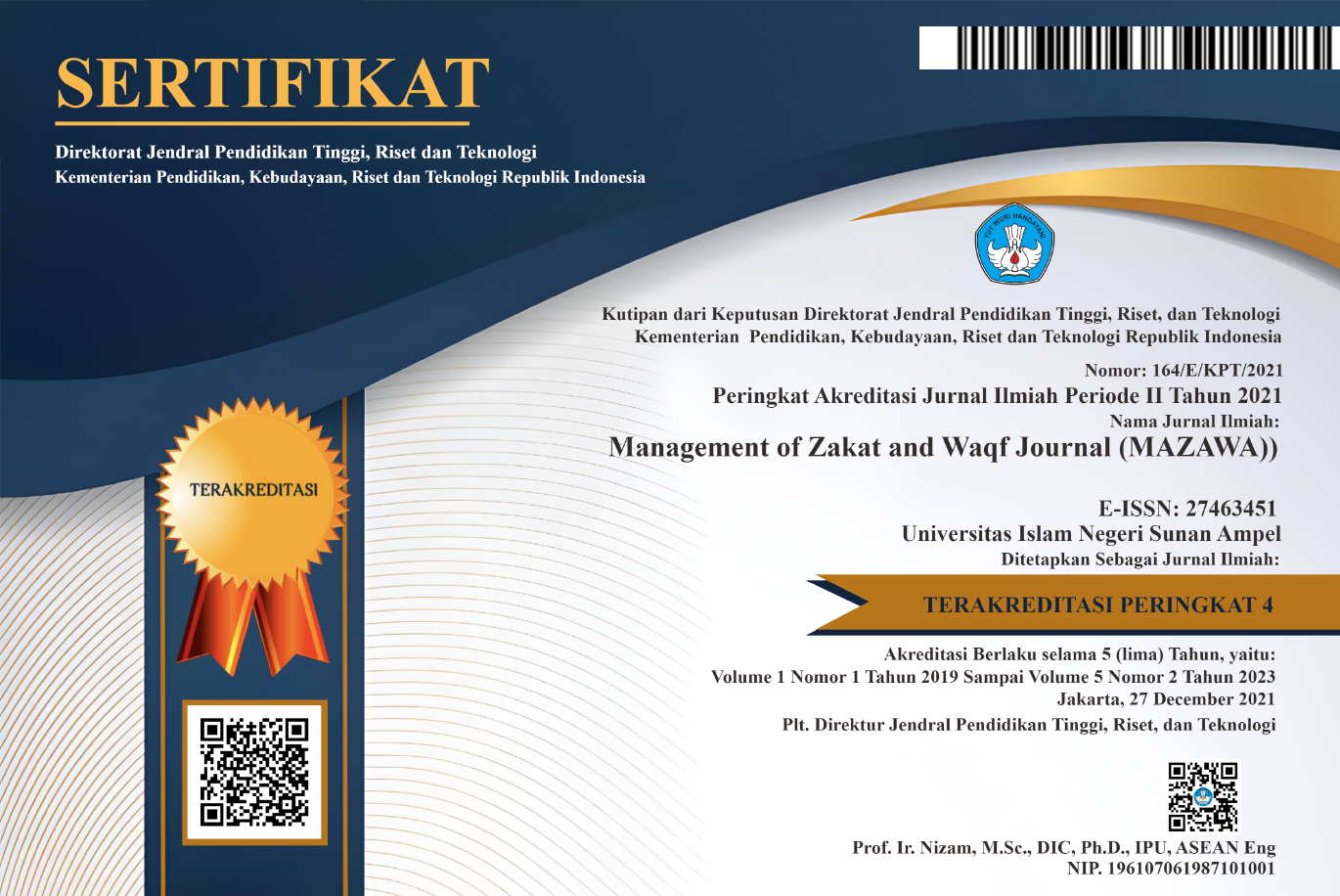Contextualization of Productive Zakat in the Modern Era to Reduce Poverty
DOI:
https://doi.org/10.15642/mzw.2023.4.2.134-148Keywords:
productive zakat; economic development; zakat institutionsAbstract
This study aims to analyze empirically whether productive zakat has an impact on community economic development. Poverty is a social problem that has not been resolved and continues to emerge along with the times. Thus, the existence of productive zakat in the form of business capital can be a solution as a form of contextualization. To develop the economy, it is necessary to develop the distribution of zakat to micro, small and medium enterprises so that there is cooperation and synergy between individuals. Using a qualitative method by taking primary sources on productive zakat at the zakat institution al-Hidayah Sidoarjo on mustahiq income. The findings show that mustahiq's income is affected by the utilization of productive zakat with a large influence contribution of 41%. This can be seen from the development of income and meeting the needs of mustahiq after participating in the productive zakat empowerment program and the LAZ al-Hidayah Sidoarjo waqf can be used for business capital.
Downloads
Downloads
Published
How to Cite
Issue
Section
License
Copyright (c) 2023 Hapsari Wiji Utami

This work is licensed under a Creative Commons Attribution-NonCommercial-ShareAlike 4.0 International License.





